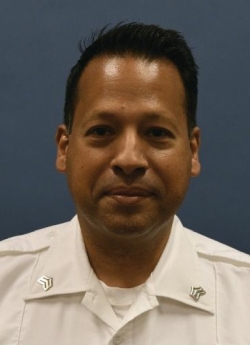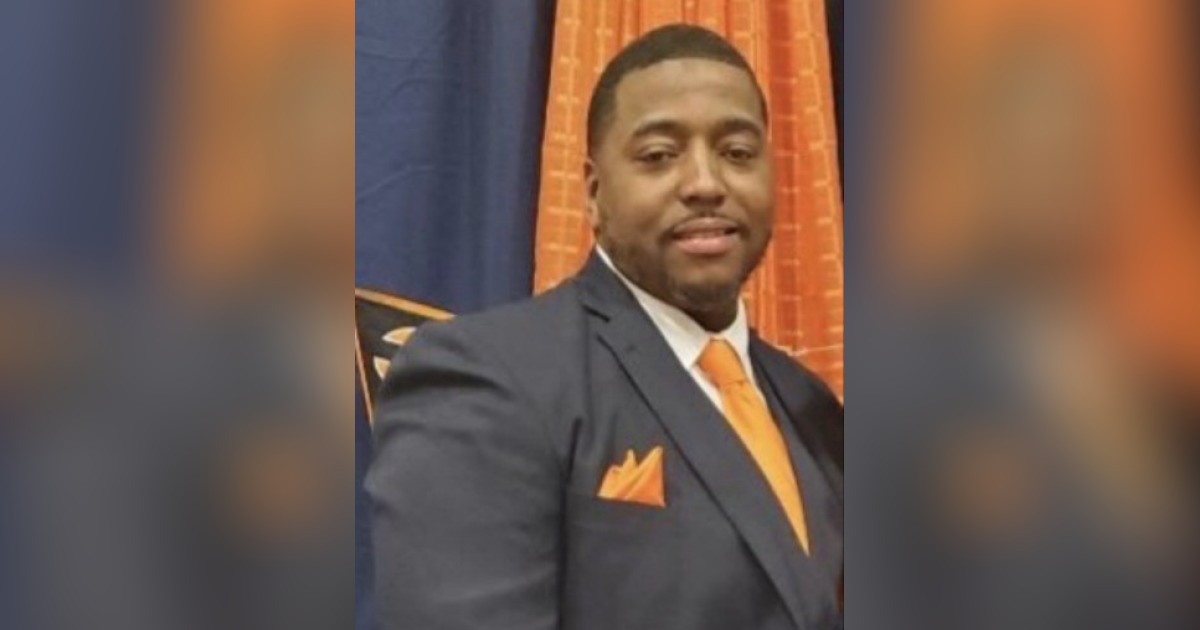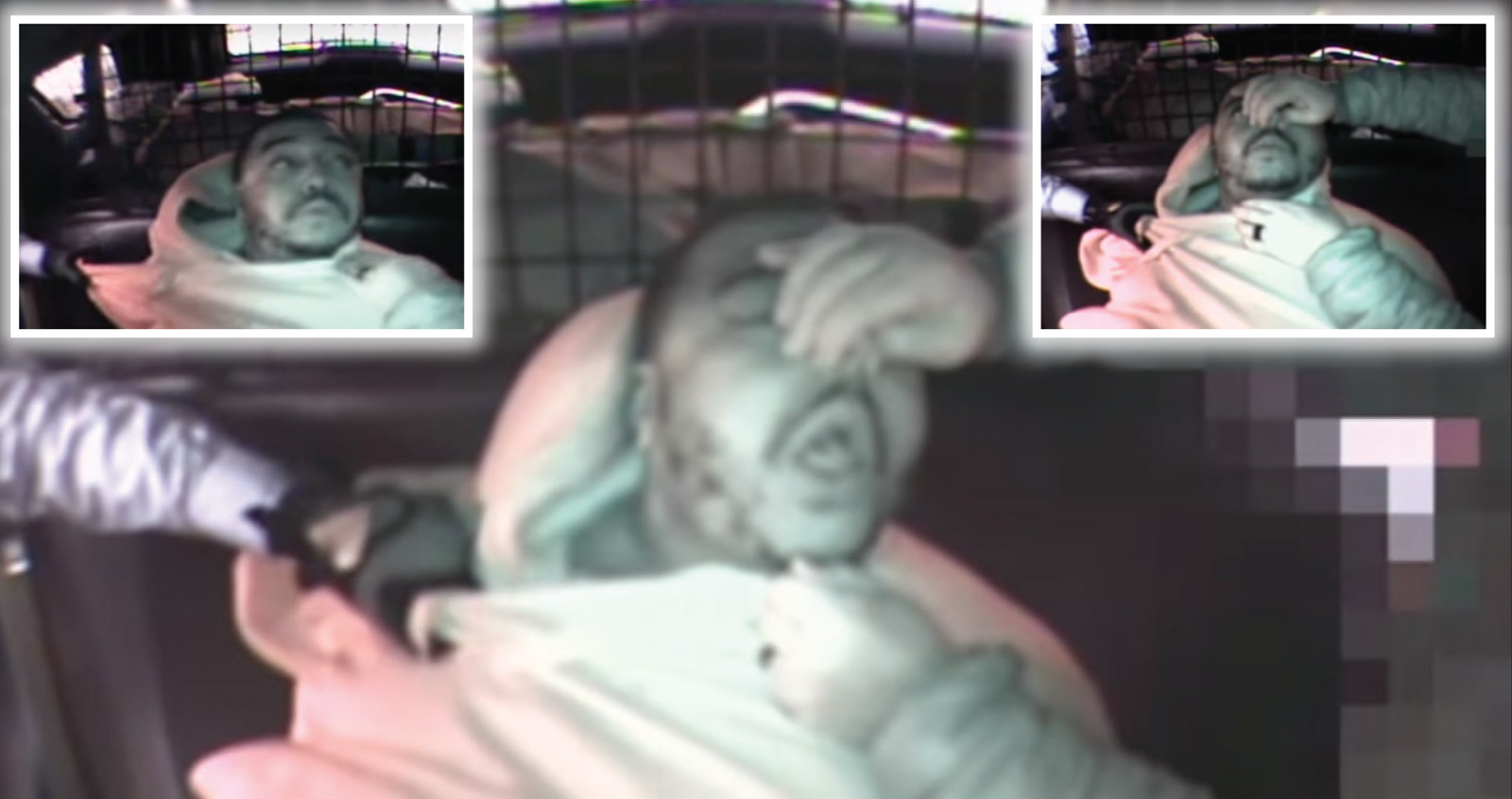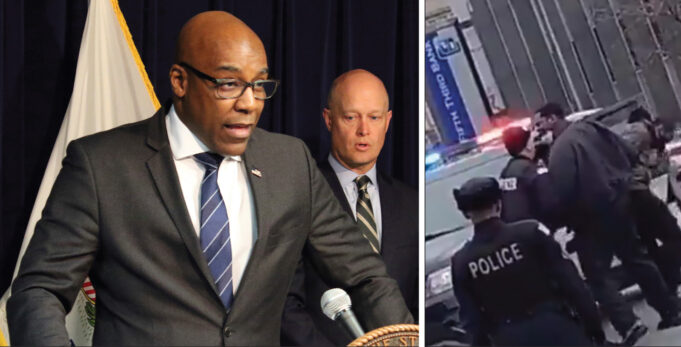When rogue cops abuse, mistreat and police Black men, women and children and patrol Black communities with a “shoot first ask questions later” approach the question that often arises is “where are the good cops?” However, on the rare occasion officers do step in, intervene, deescalate, and do the right thing, they are often punished and suffer retribution.

Police Sgt. Javier Esqueda is a prime example. In January 2020, 37 year old Eric Lurry died in police custody. There was no public outcry. His death was, in essence, a cover up. That is until Joliet, Ill., Sgt. Javier Esqueda leaked police bodycam footage of what transpired to a local television reporter months later.
The result? Sgt. Esqueda was suspended within days and arrested on felony charges. According to Joliet Police Chief Dawn Malec, violations include conduct unbecoming an officer, improper release of evidence and making a public statement about the department without prior permission from the police chief. Meanwhile, the officers involved in Eric Lurry’s death faced no criminal charges for what happened, and three are still working on the force.
The video depicts two officers arresting Mr. Lurry and placing him in the back of a squad car. He is chewing on something and breathing heavily, and an officer concludes he has drugs in his mouth.
When an officer believes someone in custody requires medical attention, it is department policy to take that person to the hospital. Yet as Mr. Lurry slowly started to become unconscious, and as he displayed at least three of the four signs of an opiate overdose, according to the department’s protocol—no response, the presence of drugs and shallow breathing—the paramedics weren’t called. Instead, officers held Mr. Lurry’s nose and called for a flashlight or baton to be stuck in his mouth. Paramedics were only called after an officer noticed Mr. Lurry, who is Black, had stopped breathing.

The incident has prompted Illinois Attorney General Kwame Raoul to launch a civil investigation into the Joliet Police Department.
“After receiving the request from Joliet’s mayor and city officials, my office began a preliminary review of Joliet Police Department records and other information. It is clear that a formal investigation is needed to look at whether the department has engaged in patterns or practices of unlawful or unconstitutional policing,” he said. “In the coming weeks, the Attorney General’s office will conduct a thorough, impartial and independent review of whether reforms are needed under the law.”
The investigation’s questions, findings and conclusions will be focused on whether systemic problems exist within the Joliet Police Department and will not reconsider criminal charging decisions within the jurisdiction of local prosecutors, according to a Sept. 8 press release.
Javier Esqueda is one of countless officers who have been retaliated against for either exposing other officers wrongdoings or questionable behaviors on the force or for intervening in an incident.
Double standards
Cardia X, a police officer in Harvey, Ill., a Chicago suburb, who arrested a security guard for hitting a suspect, told The Final Call via email that there is no fundamental difference in the relationship between Black and White in the police department than anywhere else in society.
He quoted words from the Most Honorable Elijah Muhammad, who wrote in a December 6, 1968, edition of the past Nation of Islam newspaper Muhammad Speaks, “In the past and maybe the present, the White officer chooses from among us the Uncle Tom-like men to serve as law enforcement officers over us. This type of Black officer makes more trouble in the community than the trouble that is made by the community, because he wants to be loved and honored by the W hite officer at the expense of his Black Brother. Surely he does not want to place on the force a Black Man who loves his Black people and wants to see them at peace with each other.”
“So when a Black or Brown officer violates this unwritten policy and stands up for their own in the way of stopping and reporting misconduct, it reveals to the White-often administrative staff at the department that they made a miscalculation in picking the perfect ‘Uncle Tom-like’ Black Officer,” Cardia X said. “And of course, once this miscalculation is revealed, White officers go to work to correct it by getting rid of the Black officer who is not willing to tow the line. The bottom line is, as a Black officer, your acceptance into the ‘Brotherhood of Blue’ is predicated on how you mistreat and/or let Whites mistreat your own people,” he added.
Brenda James’ story is a testament to how Black officers are treated differently even in issues not dealing with stopping fellow officers from abusing citizens.
“I don’t feel like I’m being treated as if I was an officer. I just feel like I’m only being looked at as a Black woman whose life isn’t valued,” she told The Final Call.
She served as a liaison between the Boston Police Department and the community. In 2010, the department failed to clear Ms. James of an injury and later charged her with Absence Without Leave in November 2011 instead of injured leave. She was medically cleared and returned to full duty in January 2012, but later that year, on June 8, 2012, the department’s captain met with her at the station at about 1 a.m. without a union representative. She was assaulted with her loaded firearm when it was unexpectedly wrangled out of her holster without provocation or any reasonable justification, and she was issued a suspension. She has been fighting to get justice for over a decade.
“I don’t want this to happen to anyone else,” she said. To read the incident report, excerpts from transcripts and the list of facts regarding her case, visit her Facebook page Black Woman with a Badge.

Is reform even possible?
When Cariol Horne heard about Mr. Esqueda’s case, she expressed to The Final Call, “That’s crazy, because he had no other choice but to leak it, because they would have covered it up like they did.” She is the author of Cariol’s Law.
In 2006, Ms. Horne, a former police officer with the Buffalo, New York, police department, stopped White officer Gregory Kwiatkowski’s chokehold on a Black suspect. She was fired in 2008, one year before she was set to receive her pension. After more than a decade, she won a lawsuit in April and is now eligible to receive back pay and benefits for the period of July 26, 2008 to Aug. 4, 2010.
She is still waiting to receive compensation, but she said in the meantime, she wants to get Cariol’s Law passed nationwide and internationally. Cariol’s Law, which was passed in the city of Buffalo, makes it mandatory for officers to intervene when another officer is using excessive force. It also offers protections for officers who intervene.
Many places have “duty to intervene” laws, but Ms. Horne said those laws still don’t protect the people who blow the whistle.
“On the streets people will say, ‘Hey, if you see something, say something,’ as the cops will tell people. But then in the cop culture, nobody’s saying anything. Everybody’s being quiet,” she said. “You can’t tell the public to do one thing and you’re totally going against what you’re supposed to be doing. That is the very purpose of the law, to add protections for officers who do stand up against the brutality of violence, the lies.”
Ms. Horne has been working with Strategies for Justice, which she said is building a network of officers who aren’t just going along to get along.
In Prince George County, Md., Black and Latino officers are receiving $2.3 million as part of a settlement for a workplace discrimination lawsuit against the police department. Members of the Hispanic National Law Enforcement Association and the United Black Police Officers Association said they faced systemic racism in promotions and discipline and also accused the police department of retaliating against those who tried to expose wrongdoing.
Several laws to protect whistleblowers across the country are being proposed or have already passed. Maryland passed a police reform act earlier this year that provides protections for a police officer who reports wrongdoing by another officer. In May, 171 advocacy and law enforcement organizations signed a letter asking congressional leaders to include “anti-retaliation rights for reporting law enforcement misconduct in any justice reform legislation regarding policing.”
“In many cases, accountability requires testimony from those willing to bear witness, which are often fellow officers and law enforcement personnel,” the letter says. “However, the ‘blue wall of silence,’ compounded by the lack of anti-retaliation protection for law enforcement, forces law enforcement officers to risk their careers, safety, or even their lives when they choose to blow the whistle. That is why we are asking Congress to include whistleblower rights in police reform bills.”
Very little change from the 60s to present day
Howard Saffold and Ron Hampton were fighting corruption in police departments as early as the 60s and 70s. Mr. Saffold is a founder of the Afro-American Patrolmen’s League in Chicago, where he helped challenge the double standards of how police performed in the Black community. He also co-founded the National Black Police Association and the Positive Anti-Crime Thrust.
“We actually had to sue the city of Chicago. And we didn’t have a consent decree. We actually took them all the way to the United States Supreme Court, challenging their hiring practices, their promotion practices, the assignment practices and their disciplinary practices,” Mr. Saffold told The Final Call.
He said there was constant retaliation. “They retaliated like any racist institution would. And so that gave us an opportunity to learn how to fight back,” he said.
Mr. Hampton was on the police force in Washington, D.C., from 1970 to 1994. He is a former executive director of the National Black Police Association. He described that there were times when he had to report police officers for striking handcuffed citizens and a time when he spoke out and testified on behalf of someone who was on death row in Houston, Texas. But there were consequences, he said. He received personal threats and threats on his family.
“I wanted to be true to myself. I was Black. I wasn’t a police officer. I was a Black person who had a job in policing, and I was very much aware of the unequalness of justice and everything else in our society,” he told The Final Call.
He said there have been some changes and success stories regarding policing today versus back then, but nothing permanent.
“It’s almost like you got to start over again. In the police reform movement, they talk about abolition. But that’s almost like what you have to do if you really want to clean the system out. You got to abolish the present system that it operates within and then start all over again,” he said. “I also happen to believe that that’s not impossible. I don’t believe that’s impossible.
“I think we can give it up and just start all over again. We can even rename it, give it a name that’s going to really mean what it is that we’re going to be doing every day,” he continued. “Like ‘justice and healing system.’ No, we don’t have to call it the criminal punishment system. We can call it the ‘justice and healing system,’ and it can do those kinds of things.”
Mr. Saffold also said he has seen some change, but that it’s worse. “It’s worse because of the lack of consistent accountability mechanisms being put in place to discourage misconduct, and it encourages people who normally would not have even tried it had they seen an example of what happens to you when you do it the wrong way,” he said.
He explained that it’s inaccurate to describe police as “a few bad apples” and instead, described it as “cancer that’s metastasized over the years.” When referring to policing, he uses an acronym: CERN—corruption, excessive force, racism and nepotism.
“We need to pay attention to the long-term effect of not correcting this and institutionalized retaliation in terms of in Chicago right now, having something they call a consent decree, that as you track their performance and trying to correct these things that the city was accused of, the federal government weighed in from a civil rights violation perspective,” he said.
“And then their unwillingness to do what’s right when they get caught. So the enforcement of laws is more important. I mean, what difference does it make if you have a litany of ‘don’t y’all do this’ and ‘don’t y’all do that’ and then nobody enforces or causes any kind of redress on the part of the victims that are complaining in that category.”
Mr. Saffold said when good officers face backlash, like that of Javier Esqueda, the community should rise up in support and that it shouldn’t solely fall on Black police organizations. Cardia X said the community has an obligation to stand up for officers who risk their reputation, salary, freedom and sometimes their lives.
“We have to be solution-oriented, and I have to say that certain things like policy reform and training will only bring marginal benefits because it circumvents the real issue instead of adequately addressing it,” Cardia X said.
He also said Black police organizations need to be stronger and that the relationship between the Black police officer and the Black community must be repaired.
He quoted the Honorable Elijah Muhammad’s words from the Dec. 6, 1968 article: “Throughout the country, let us take over where we are dominant in the towns and cities and have Black officers in control of enforcing the law upon us.”
Editor’s Note: In Volume 40, Edition 4 of The Final Call, Brenda James is quoted saying, “I noticed that the White officers were White supremacists.” Her words were “I noticed that White officers, really well White superiors…”













